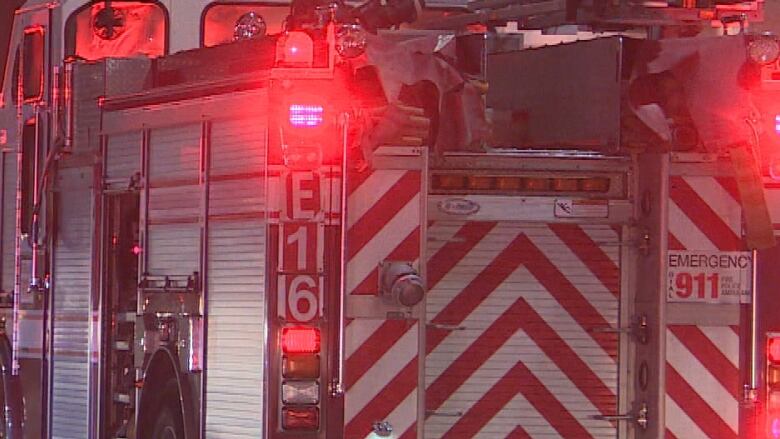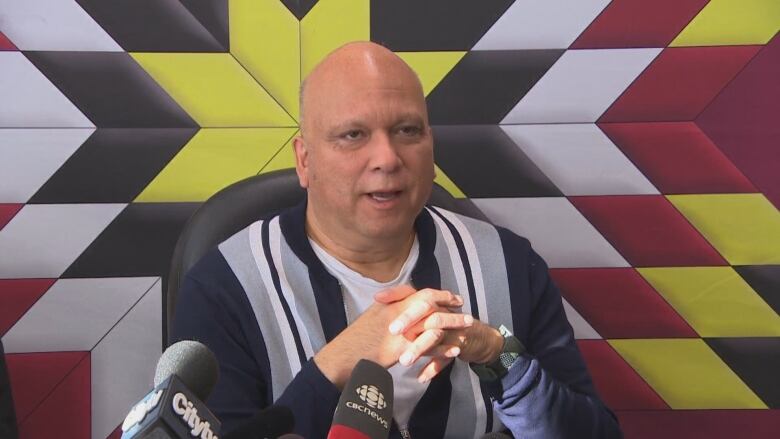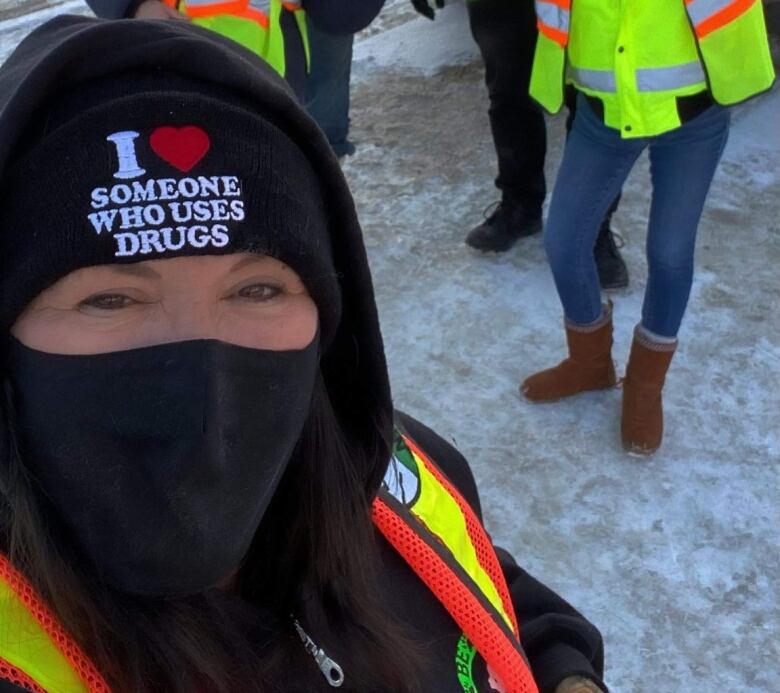Systemic racism goes way beyond incident with Winnipeg firefighters, Indigenous advocates say
Leaked report on treatment of woman last year reinforces feelings of trauma, fear

Indigenous leaders and healers in Winnipeg say they're traumatized, angry and need public support after a report found two firefighters' racism and biases prevented a young Indigenous woman from getting the medical care she needed.
The report concludes the firefighters who responded in Octoberto a woman with a self-inflicted neck wound failed to help despite several requests by the paramedic in charge, which delayed her medical care and transportation to hospital by two minutes. A firefighter did not apply pressure to the woman's neck to stop the bleeding during the ambulance ride, so she had to do it herself, the report says.
The woman survived, but the report says the firefighters showed a lack of concern for her well-being due to "implicit bias" based on her race. It also saysone firefighter's refusal to get in the ambulance was tied to a race-related issue with the paramedic, a person of colour who had previously raised concerns about racism within the Winnipeg Fire Paramedic Service.
The WFPS says anti-racism and anti-oppression training will begin within the next month.
"There shouldn't have to be so much training. These women, they're being treated inhumanely. They're being dehumanized at a time where they're their most vulnerable. That's shameful," said Jeannie Red Eagle, a member of the Mama Bear Clan who co-chairs a harm reduction network based out of Selkirk.
"What I hear is that broad-reaching systemic racism. I feel that we're getting to understand how deeply embedded the systemic racism is."
While patrolling with the Mama Bear Clan in the North End, she frequently runs into women who need medical help but are too afraid to seek or accept it, she said. This situation is a rarely documented example of what the inner-city population experiences every day, she said.
"There's a fear to be in that system, even if they're at their most vulnerable, where they need the help the most. They fear being treated in a disparaging manner," she said.

Dr. Barry Lavallee, medical advisor for Manitoba Keewatinowi Okimakanak health entity Keewatinohk Inniniw Minoayawin,has seen the same fear and mistrust of the health-care system amongmany Indigenous people, andwhen incidents like the one in the leaked report show those fears are founded, itupsets him.
"I was traumatized again, recognizing that those patterns are still there. That people are denied care by people who are supposed to attend to them including fire ambulance responders," he said.
"This is how harms from stereotypes occur."
'Fire them'
Lavalleewas not shockedbut deeply saddened by the "denial of an Indigenous woman's proper care" by the firefighters.
"Here's my advice. Fire them. There's no excuse," he said.
"They obviously don't want to be providers. If they don't provide the care, and it's witnessed, they should be fired, terminated, because how many other people have those two, and other providers who do the same thing, how many times have they neglected other people who we can't see or witness?"
An impoverished Indigenous womancame to his clinic on a Monday about four years ago after a man had stabbed her in the neck on the weekend, he said.
She'd been too afraid to go to Health Sciences Centre for care, opting instead to risk her life waiting to see him instead.
This is just one of theexamples of mistrust and stereotypingLavallee brings up when teaching new medical students, saying some Indigenous people think of death when they look at Health Sciences Centre.
'One example is too many'
On Wednesday, Winnipeg Fire Paramedic Service Chief John Lane acknowledged there was a problem with the call in the report.
The service has zero tolerance for racism and this was a rare incident among tens of thousands of calls each year, he said.
"One example like this is too many, but this is one example or one event that has been reported [out of]all of those 90,000 calls," Lane said.
Lavallee said some victims of racism may not report itor even recognize it, because it has become so normalized in systems like the WFPS.
"This is rampant. People aren't born racist, they're created to be racist, within systems, within their families. So when they have power, like firefighters, ambulance attendants, other people, then their stereotypes about Indigenous people become racism activated," he said.
"It's got to stop, and I am glad for the person who actually brought this forward. That was courageous."

Red Eagle wants annual training, akin to CPR certification, for anyone providing health and emergency services to Indigenous people and people of colour. She said that kind of training should have been implemented years ago.
"It makes me realize how much work needs to be done. We [Mama Bear Clan] are on the front lines, and so are the paramedics, and so are the firefighters, and so are the Winnipeg Police Service. We're all on the front lines, but we have different perspectives. We comecreating relationships," she said.
She's trying not to have a reaction of anger, butinsteadfocus on joining forces with people who are "like minded"in order to move forward.
She gets emotional when reflecting on the young Indigenous woman who was denied the care she needed.
"It's disheartening to see, and at the same time, it allows us to go back and just maybe think of ways how can we help them as they're facing so many obstacles, specifically when they are at their most vulnerable?"













_(720p).jpg)


 OFFICIAL HD MUSIC VIDEO.jpg)
.jpg)



























































































